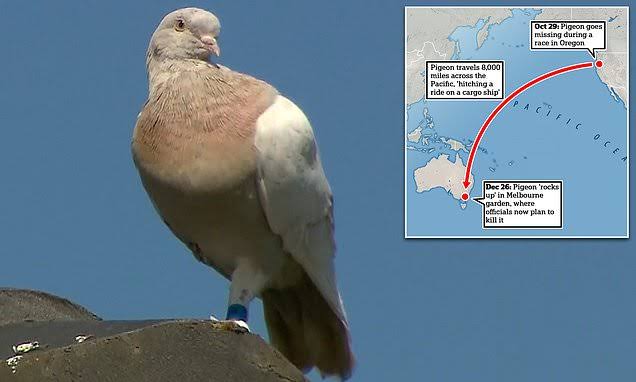**Title: Maximizing Pigeon Racing Performance through Strategic Food Rationing**
**Introduction:**
Pigeon racing is a sport that demands peak physical performance from its avian athletes. To gain a competitive edge, pigeon fanciers continually seek innovative ways to enhance their birds’ speed and endurance. One critical aspect often overlooked is the role of nutrition, specifically food rationing, in optimizing racing performance. This article explores the science behind food rationing for pigeons and its potential to elevate performance in the competitive world of pigeon racing.
**Understanding Pigeon Nutrition:**
Pigeons, like all athletes, require a balanced diet to fuel their bodies for optimal performance. The key nutrients essential for racing pigeons include proteins, carbohydrates, fats, vitamins, and minerals. However, the quantity and timing of these nutrients are equally crucial factors to consider.
**Food Rationing Strategy:**
Food rationing involves carefully controlling the amount and type of food given to pigeons throughout their training and racing season. By adjusting the ration size and composition, fanciers can influence various physiological processes that directly impact racing performance.
**1. Pre-Race Preparation:**
In the days leading up to a race, pigeons require a diet rich in carbohydrates to fuel their muscles for the intense physical exertion ahead. Decreasing the protein content during this period helps prevent excessive muscle buildup, which could weigh down the birds and hinder their speed.

**2. During Racing Season:**
Throughout the racing season, maintaining a consistent food ration is essential for ensuring pigeons remain in optimal condition. A balanced diet that meets their nutritional needs without overfeeding is key. Overeating can lead to weight gain and decreased agility, negatively impacting racing performance.
**3. Post-Race Recovery:**
After a race, pigeons require a combination of proteins and carbohydrates to support muscle repair and replenish energy stores. Adjusting the food ration during this period helps expedite recovery and prepares the birds for subsequent races.
**4. Hydration:**
In addition to food rationing, ensuring pigeons remain adequately hydrated is crucial for maintaining peak performance. Clean, fresh water should be readily available at all times, especially during hot weather and intense training sessions.
**Benefits of Food Rationing:**
Strategic food rationing offers several advantages for pigeon racing enthusiasts:
– Optimizes energy utilization, enhancing speed and endurance.
– Maintains ideal racing weight, promoting agility and maneuverability.
– Supports muscle development and recovery, reducing the risk of injury.
– Provides a competitive edge by fine-tuning performance through nutrition.
**Conclusion:**
In the world of pigeon racing, success often hinges on the smallest of margins. By implementing a strategic food rationing strategy, fanciers can elevate their birds’ performance and increase their chances of victory. Understanding the nutritional needs of racing pigeons and adjusting food rations accordingly is a powerful tool in the quest for racing excellence. As the sport continues to evolve, so too will the methods used to optimize the performance of these remarkable avian athletes.
Leave a Reply